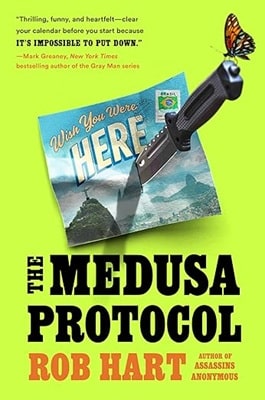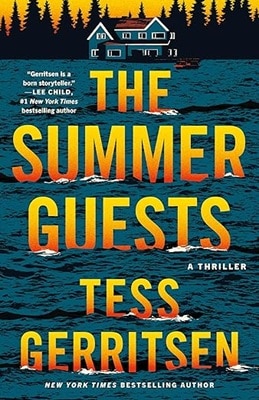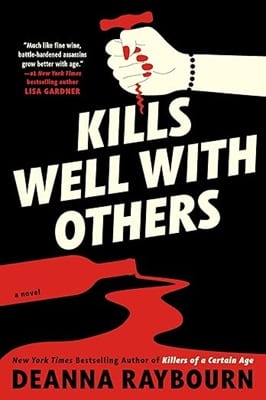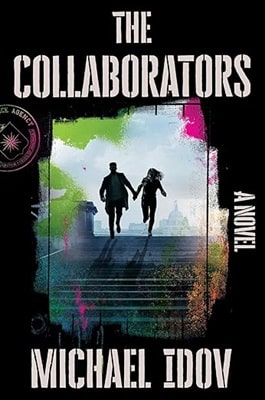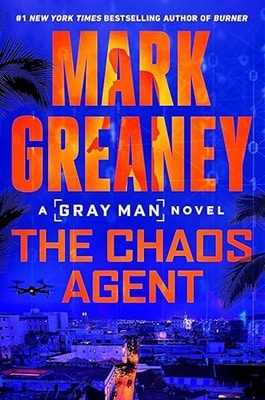
Christina Hillsberg is a former CIA intelligence officer and author of Agents of Change: The Women Who Transformed the CIA and License to Parent: How My Career as a Spy Helped Me Raise Resourceful, Self-Sufficient Kids.
Q: Do you believe that those working in intelligence should be honored on July 4th alongside the military and law enforcement?
Christina: July 4th is a great time to take a moment and thank those that work in the shadows as well as all the servicemen and women in the military and law enforcement. There are so many incredible people behind the scenes to keep Americans safe, including the remarkable women I highlight in the book. The emphasis of those working at the CIA is to keep Americans safe here at home, abroad, and American interests. As Americans celebrate July 4th, I hope they remember why we have all these freedoms.
Q: How did your background at the CIA help you in writing this book?
Christina: We’re surrounded by so many misconceptions of the female spy, thanks in large part to Hollywood. I knew I was uniquely positioned to write a book about the real women in intelligence. Having spent time in both analysis and operations during my time at the CIA, I leveraged that experience to build trust with those I interviewed, many of whom had never spoken publicly about their CIA experiences.
Q: What motivated you to tell the stories of these CIA women?
Christina: I wanted to write about the women who came before me and how the female spy has changed over the years, to amplify their stories and voices. It was meant to show the progress the Agency has made over the years regarding the role of women. There is also some conversation about the less favorable part of the history including the struggles of sexual harassment/abuse. That said, it’s meant to be a celebration of the incredible accomplishments of female officers at the CIA as well as the notable progress the spy organization has made throughout the decades.
Q: Can you talk about the meaning behind the book’s title?
Christina: They were all trailblazers but considered troublemakers for making change happen. Even though the term should be intelligence officers I used the word ‘agents’ because of a play on words, they were the change agents. Originally the word ‘sisters’ was in the title but as I did the interviews and research, I realized there was no ‘sisterhood’ at the Agency although they opened the doors for other women. The sisterhood seems to come after we’ve left. I value the friendships I’ve made with these older women because they are filled with stories, wisdom, and experiences.
Q: Do you agree it’s unfortunate that CIA officers rarely get public appreciation for their service?
Christina: Those at the CIA are bred not to speak of the accomplishments and to share. We always used to say in the CIA, there is only such a thing as “policy success and an intelligence failure.” Many times, people do not hear about all the intelligence successes that happen all the time. If there is a success, the policy makers will take credit for it. Hopefully, with this book, Americans appreciate the role those at the CIA play in keeping them safe and become more aware of what they do. For example, Marti, a CIA officer, never told her children until they were much older that she was CIA. Many women of the CIA were quiet about their activities. Often these women did not share their stories even though they played vital roles in national security. I wanted to choose women who resonated with readers and to humanize them. To show how these women had families and had to make life choices.
Q: Why did you use the James Bond trope to explore the evolution of female spies?
Christina: When there is talk about the female spy the “Bond girl” comes to mind. Look at the trajectory of the Bond girl from the very first movie until now. It goes from a one-dimensional sidekick to a multidimensional very capable “Bond girl.” I thought it would be a great story telling structure to trace that along with the changing role of women through the decades at the Agency. It was my hope to write a book that is both entertaining and approachable for readers beyond history buffs and spy afficionados.
Q: Marti Peterson’s story is especially compelling—would you agree?
Christina: Absolutely. Marti began her career as a “CIA wife,” providing secretarial and administration support while accompanying her husband on his tour in Laos. She felt she was losing her own identity, an “appendage to his career.” After her husband was killed, she wanted to be an operations officer and refused the Agency’s offer to give her a secretarial role. Instead, she demanded more commensurate with her experience and abilities. At that time women were told they could not run operations, did not have the skill set, and were inferior. There was the fear they would get pregnant or marry and leave. But Marti was persistent, resilient, and determined to show what she was made of. She even learned Russian for a tour in Moscow where she was the first woman to operate clandestinely. She was an extremely accomplished woman whose experience helped shape the trajectory of women at the CIA for years to come. I’m grateful to have had the opportunity to sit down with her and hear about her career.
Q: What strengths made women particularly effective as intelligence officers?
Christina: At the beginning of the book, I include an epigraph by an operations officer, “Don’t let somebody tell you, for whatever reason, you can’t do it because you’re a woman.” I think this is a powerful message to younger women, that nothing can hold them back. Because women were often underestimated, they leveraged that to their benefit, and by extension, the CIA’s as well. They blended into the background in male-dominated cultures across the globe, stealing secrets all while going undetected. Moreover, many women officers felt they were better listeners than their male colleagues, detailed oriented, more empathetic, could build rapport in different ways than the males, yet set boundaries.
Q: Were there supportive men who helped elevate these women at the CIA?
Christina: Oh, yes. Some women were fortunate to have supportive male colleagues and superiors, and in many cases, that meant the difference between a woman’s ability to attend operational training at the Farm or remain in a non-operational role at headquarters. Janine Brookner, for example, secured her first overseas assignment as a result of a male ally who advocated for a woman operations officer in his station. But once she arrived, it was up to her to prove her worth, and she did that in spades.
Q: Why was Janine Brookner an important figure to include in the book?
Christina: Even to this day people have strong feelings about Janine because she was so controversial. Having already passed away prior to my beginning my research for this book, I had to rely on interviews with family, friends, and colleagues to create Janine’s narrative. After hearing conflicting impressions, I realized that those who had something negative to say about her never worked with her directly, and yet, they criticized everything from her style of dress to her attitude. As with everything in life, everyone brings their own bias to the table, and it was my responsibility to wade through the noise and create the most accurate portrayal of Janine. And after dozens of interviews, I believe she was a smart and tenacious intelligence officer whose bravery created one of the most important watershed moments in the history of women at the CIA. After Janine was wrongfully accused of sexual harassment, she fought back and won. Although the CIA settled with her, the Agency did not admit any wrongdoing. The settlement said she had to resign. Because she knew this was just wrong, she became a lawyer to represent Federal government employees in their cases involving sexual discrimination.
Q: How would you personally describe Janine Brookner?
Christina: I wish I could have met her, but unfortunately, she died. I would describe her as loyal, ambitious almost to a fault, resourceful, career oriented, empathetic, caring, excellent operational tradecraft, intuitive, and drive. She remained a close companion to Colin, her ex-husband and retired CIA case officer, who I’ve been fortunate enough to get to know throughout the reporting of this book.
Q: What message do you hope readers take away from this book?
Christina: I want readers to realize how important women are to national security. They are competent and talented officers who bring unique perspectives to all aspects of Agency work, a vital part of the mission. I want to encourage women to work in intelligence with their eyes wide open. I want to make sure that people celebrate the accomplishments of these women. This not a book about an ‘axe to grind’ regarding sexual harassment and assault but rather, a book about the accomplishment of some remarkable women.
Agents of Change by Christina Hillsberg reads like an espionage thriller. Hillsberg, a former CIA intelligence officer, uses her insider knowledge to write a nonfiction book about US patriots working for the CIA who happened to be women trailblazers. These women sacrificed their personal lives, risked their safety, defied expectations, and boldly navigated the male-dominated spy organization. The book profiles dozens of agents from the 1960s to the present.
The book takes readers behind the scenes as it explores by decade how women’s roles in the CIA evolved. The compelling exclusive interviews with those CIA officers show their resilience and determination.
They had to overcome the thinking of the times about women’s roles in the workplace. Although the book does discuss the fight for gender equality at the CIA, and the culture of sexual harassment/assault, this is not the essence of the book, but the riveting stories of how these women risked their lives while performing their duties that included doing espionage, recruiting spies, and stealing secrets.
One compelling story is of Marti Peterson. Marti served as an intelligence officer in Russia where she conducted dead drops. Because the KGB did not think that a woman would be used to conduct clandestine operations, she was able to collect foreign intelligence right under the Russians’ noses without them knowing. The description of her cover and how she went about her duties is riveting, especially after being captured by the KGB, betrayed by double agents.
Then there was Janine Brookner. She had her antennas up about Aldrich Ames who worked in counterintelligence alongside Janine’s ex-husband and long-time companion, Colin. She felt he was a security risk and brought her concerns up to the Chief of Station who ignored her. It turns out her concerns were justified considering eight years later, Ames would plead guilty to espionage on behalf of the Soviet Union. Unfortunately, she never received the credit for being one of the first people to identify him as a traitor.
A bonus is how Hillsberg makes the comparison between how the CIA treats female agents through the decades to what the James Bond films are doing with women in each decade.
Anyone who wants an espionage read should get this book. These women were groundbreakers, rabble rousers, but more important are the shields that helped to keep Americans safe.

